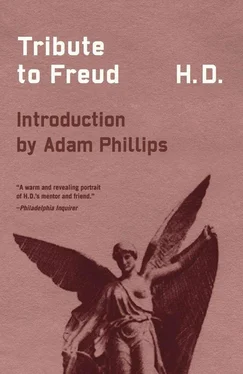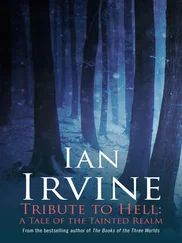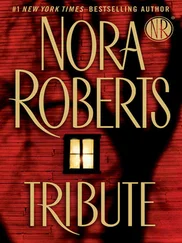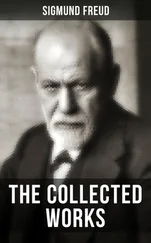It seems odd that my mother should be laughing. My brother has defied her. He is seated firm on the curb-stone. He is not going home. As he repeats this solemnly, my mother laughs more. People stop and ask what has happened. My mother tells them and they laugh too. They stand either side of my mother, more people, friends and strangers, all laughing. “But we’re collecting a crowd,” she says, “we can’t stay here, crowding the pavement.” She obtains supporters; strangers and near-strangers repeat her words like a Greek chorus, following the promptings of their leader.
There is a slight, whispered conspiracy. The strangers melt away and my mother, with feigned indifference, strolls off. My brother knows perfectly well that she will relent, she will pretend to go away but she will wait around the corner, and if we don’t follow her she will come back. He has told her that he is going away to live by himself, and he has moreover told her that his sister is coming with him. His sister waits anxiously, excited yet motionless, on the curb beside him. In addition to this final ultimatum of my brother’s, we were not supposed to sit on the curb-stone. But there we sit, not “crowding the pavement” but making a little group, design, an image at the crossroads. It appears variously in Greek tragedies with Greek names and it can be found in your original Grimm’s tales or in your nursery translation, called Little-Brother, Little-Sister. One is sometimes the shadow of the other; often one is lost and the one seeks the other, as in the oldest fairy tale of the twin-brother-sister of the Nile Valley. Sometimes they are both boys like the stars Castor and Pollux, sometimes there are more than two. Actually in the case of Castor and Pollux there were four, with Helen and Clytemnestra — the children of a Lady, we are told, and a Swan. They make a group, a constellation, they make a groove or a pattern into which or upon which other patterns fit, or are placed unfitted and are cut by circumstance to fit. In any case, it is a common-or-garden pattern though sometimes it finds its corresponding shape in heaven. And their mother has walked away. He knows that she will come back because he is older and is admittedly his mother’s favorite. But she does not know this. But though her brain is in a turmoil of anxiety and pride and terror, it has not even occurred to her that she might throw her small weight into the balance of conventional behavior by following her mother and leaving her brother to his fate.
These pictures are so clear. They are like transparencies, set before candles in a dark room. I may or may not have mentioned these incidents to the Professor. But they were there. Upon the elaborate build-up of past memories, across the intricate network made by the hair-lines that divided one irregular bit of the picture-puzzle from another, there fell inevitably a shadow, a writing-on-the-wall, a curve like a reversed, unfinished S and a dot beneath it, a question mark, the shadow of a question — is this it ? The question mark threatened to shadow the apparently most satisfactory answers. No answer was final. The very answer held something of death, of finality, of Dead Sea fruit. The Professor’s explanations were too illuminating, it sometimes seemed; my bat-like thought-wings would beat painfully in that sudden searchlight. Or reversely, other wings (gull or skylark) that seemed about to take me right out of the lower levels of the commonplace would find themselves beating in the confined space of a wicker cage, or useless under the mesh of a bird net. But no — he did not set traps, he did not really fling nets. It was I myself, by my own subconscious volition or unconscious will, who walked or flew into them. I over-stressed or over-compensated; I purposely and painfully dwelt on certain events in the past about which I was none too happy, lest I appear to be dodging the analysis or trying to cheat the recorder of the Book of Life, to deceive the Recording Angel, in fact, in an effort to escape the Day of Judgment. Once when I painfully unravelled a dingy, carelessly woven strip of tapestry of cause and effect and related to him, in over-careful detail, some none-too-happy friendships, he waved it all aside, not bored, not grieved or surprised, but simply a little wistful, I thought, as if we had wasted precious time, or precious hours together, on something that didn’t matter. “But why,” he asked, “did you worry about all this? Why did you think you had to tell me? Those two didn’t count. But you felt you wanted to tell your mother.”
All this seemed almost too simple at the time. My mother was dead; things had happened before her death, ordinary as well as incredible things, that I hadn’t told her. In some cases, I wanted to spare her worry and pain, as during the period of the First World War when I was in England and she was in America. Then there was her personal bereavement to consider; the death of my father followed closely on the news of the death of my older brother in France. My father, a boy of seventeen, and his older brother had been soldiers in our American Civil War and my father had lost this only brother in that war; he was a mathematician, an astronomer, detached and impartial, a scholar or savant, to use the more colorful French word. But the news of the death in action of my brother in France brought on a stroke. My father died, literally, from the shock. The Professor had had shock upon shock. But he had not died.
My father was seventy-four or seventy-five when he died — at any rate, not as old as the Professor was now. My mother had had her seventieth birthday in the early twenties. She stayed with me for some years in London and in Vaud, Switzerland. She went back on a visit to America. I knew that she would die there; she knew it too. But I wanted to avoid thinking about this. I did not want to face this. There are various ways of trying to escape the inevitable. You can go round and round in circles like the ants under that log that Eric pried up for us. Or your psyche, your soul, can curl up and sleep like those white slugs.
Those two didn’t count. There were two’s and two’s and two’s in my life. There were the two actual brothers (the three of us were born within four years). There were the two half-brothers; there were the two tiny graves of the two sisters (one of those was a half-sister but there were the two or twin-graves). There were the two houses, ours and our grandparents’ in the same street, with the same garden. There were the two Biblical towns in Pennsylvania, Bethlehem where I was born, and Philadelphia, where we moved when I was eight. There were for a time in consciousness two fathers and two mothers, for we thought that Papalie and Mamalie (our mother’s parents) were our own “other” father and mother, which, in fact, they were.
There were two of everybody (except myself) in that first house on Church Street. There were the two brothers who shared the same room; the two half-brothers might turn up at any time, together; there were the two maids who slept in the room over the kitchen; there were my two parents in their room. (There was a later addition to this Noah’s Ark, but my last brother arrived after this pattern was fixed in consciousness.)
My father had married two times; so again, there were two wives, though one was dead.
Then in later life, there were two countries, America and England as it happened, separated by a wide gap in consciousness and a very wide stretch of sea.
The sea grows narrower, the gap in consciousness sometimes seems negligible; nevertheless there is a duality, the English-speaking peoples are related, brothers, twins even, but they are not one. So in me, two distinct racial or biological or psychological entities tend to grow nearer or to blend, even, as time heals old breaks in consciousness. My father’s second wife was the daughter of a descendant of one of the original groups of the early-eighteenth-century, mystical Protestant order, called the Unitas Fratrum, the Bohemian or Moravian Brotherhood. Our mother’s father was part mid-European by race, Polish I believe the country called itself then, when his forefathers left it, though it became German and then fluctuated like the other allied districts back and forth as in the earlier days of the Palatinate struggles. Livonia, Moravia, Bohemia — Count Zinzendorf, the founder of the renewed Bohemian brotherhood, was an Austrian, whose father was exiled or self-exiled to Upper Saxony, because of his Protestant affiliations. The Professor himself was an Austrian, a Moravian actually by birth.
Читать дальше











